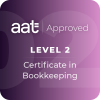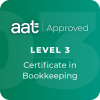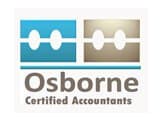
5 Common Bookkeeping Mistakes to Avoid and How to Fix Them
Bookkeeping is a critical aspect of managing any business, as it involves recording and organizing financial transactions. Accurate bookkeeping ensures that a company maintains a clear and up-to-date picture of its financial health.
Unfortunately, mistakes in bookkeeping are not uncommon and can lead to serious consequences, including financial mismanagement, compliance issues, and lost opportunities.
In this blog, we will explore some of the most common bookkeeping mistakes and provide practical solutions to fix them.
1. Neglecting Regular Reconciliation

One of the most significant bookkeeping mistakes is failing to reconcile accounts regularly. Reconciliation involves comparing financial records to external statements, such as bank statements, to ensure accuracy.
Neglecting this process can result in unrecorded transactions, discrepancies, and errors in financial reports.
Solution: Schedule regular reconciliation periods (monthly or weekly) and use accounting software that simplifies the process.
Address any discrepancies promptly, and keep track of outstanding items until they are resolved.
2. Misclassifying Expenses
Misclassifying expenses is another common error that can distort the company’s financial reports and lead to incorrect decision-making. It occurs when transactions are recorded under the wrong account category.
Solution: Establish a clear and organized chart of accounts, and provide training to bookkeeping staff to ensure they understand proper expense categorization. Double-check entries before finalizing them to minimize errors.
3. Ignoring Petty Cash Transactions

Petty cash transactions might seem insignificant, but neglecting to record them can lead to problems during audits or create difficulties in tracking expenses.
Solution: Set a policy for petty cash handling and maintain a separate log for all petty cash transactions. Regularly reconcile the petty cash balance to ensure it matches the physical cash on hand.
4. Overlooking Accounts Payable and Receivable
Failure to keep track of accounts payable and receivable can lead to cash flow issues, late payments, and missed opportunities for early payment discounts or follow-ups on outstanding invoices.
Solution: Implement a robust system for tracking accounts payable and receivable. Use accounting software to manage due dates, set reminders for follow-ups, and streamline invoicing processes.
5. Mixing Personal and Business Expenses
Blurring the lines between personal and business expenses can lead to inaccurate financial statements and create tax-related complications.
Solution: Strictly separate personal and business finances. Use separate bank accounts and credit cards for personal and business expenses. Regularly review expenses to ensure no personal transactions are recorded as business expenses.
Bonus: Failing to Back Up Data
Data loss can be devastating, especially if critical financial records are involved. Not having a proper backup system can lead to data corruption or permanent loss.
Solution: Regularly back up your financial data to secure locations, such as cloud storage or external hard drives. Test the backup and recovery process to ensure it works effectively.
Over to you
Effective bookkeeping is the foundation of any successful business. By avoiding common bookkeeping mistakes and implementing the suggested solutions, you can maintain accurate financial records, make informed decisions, and stay compliant with financial regulations.
Remember that investing in robust accounting software and providing proper training to your bookkeeping staff can significantly reduce the occurrence of errors. Always review financial reports regularly to spot any discrepancies promptly, as early detection can save time and resources in the long run.
Want a solid foundation in bookkeeping to seize opportunities for growth? Or maybe you want to get your staff trained to navigate the financial challenges of your business?
Do check out our AAT-accredited Fast Track Bookkeeping Course.






